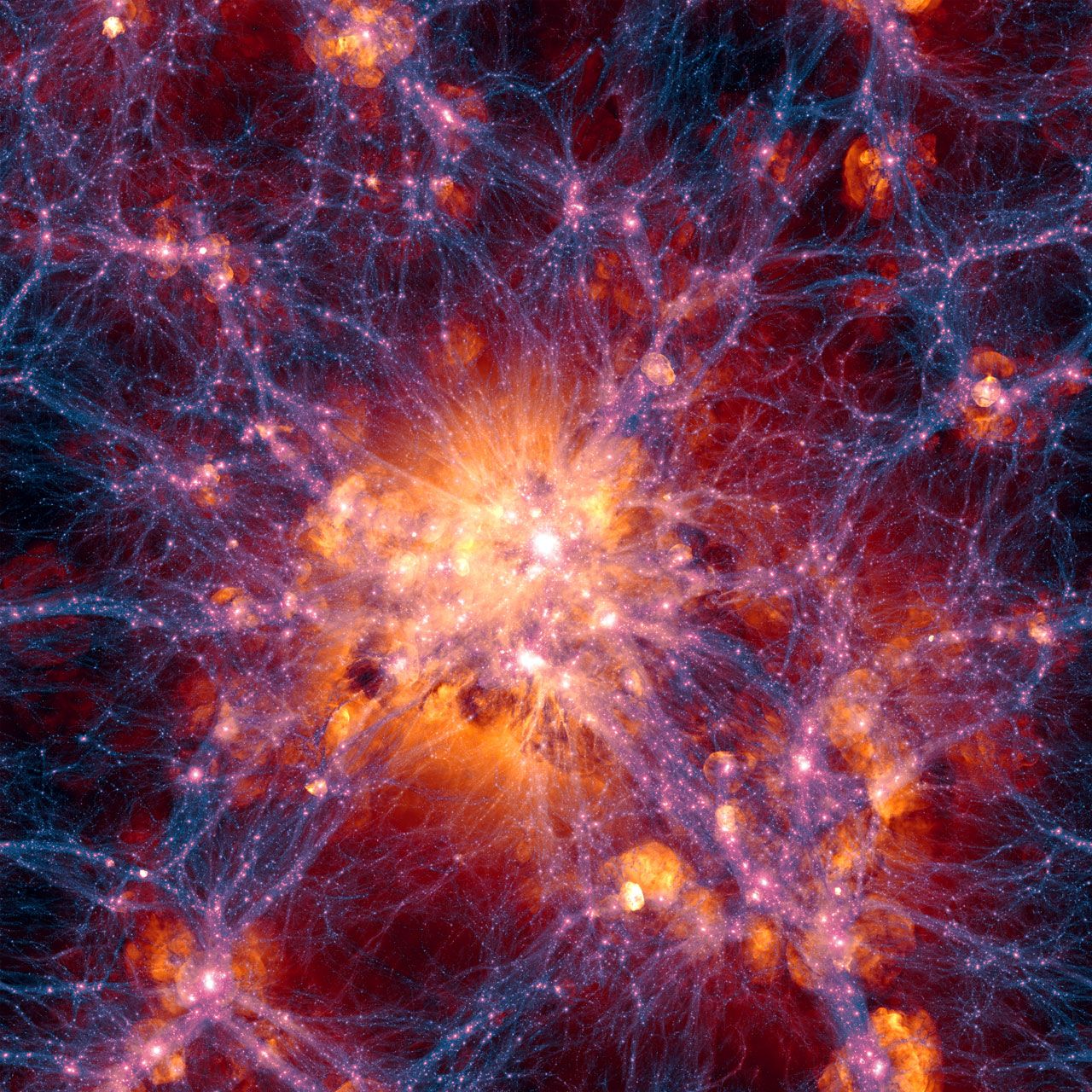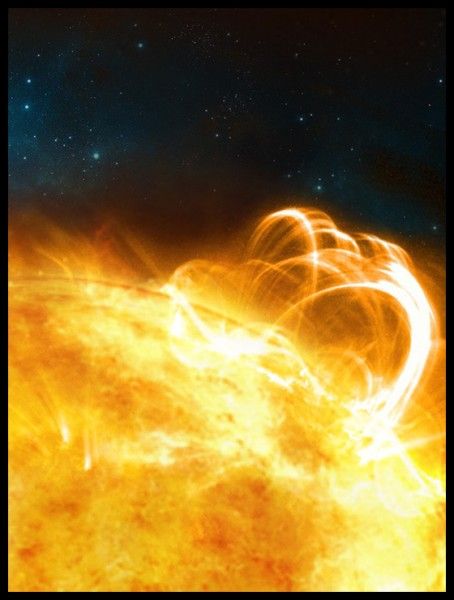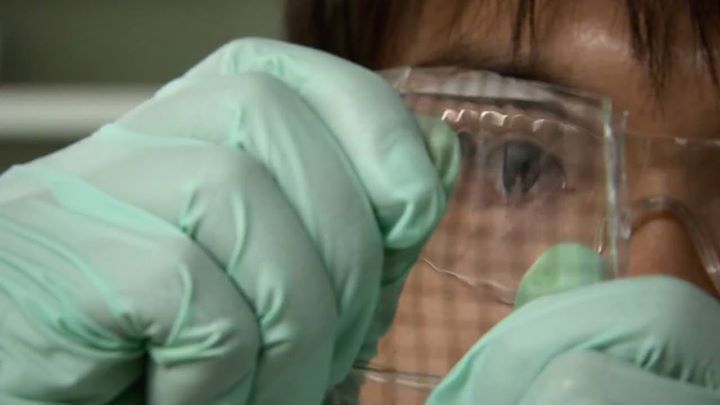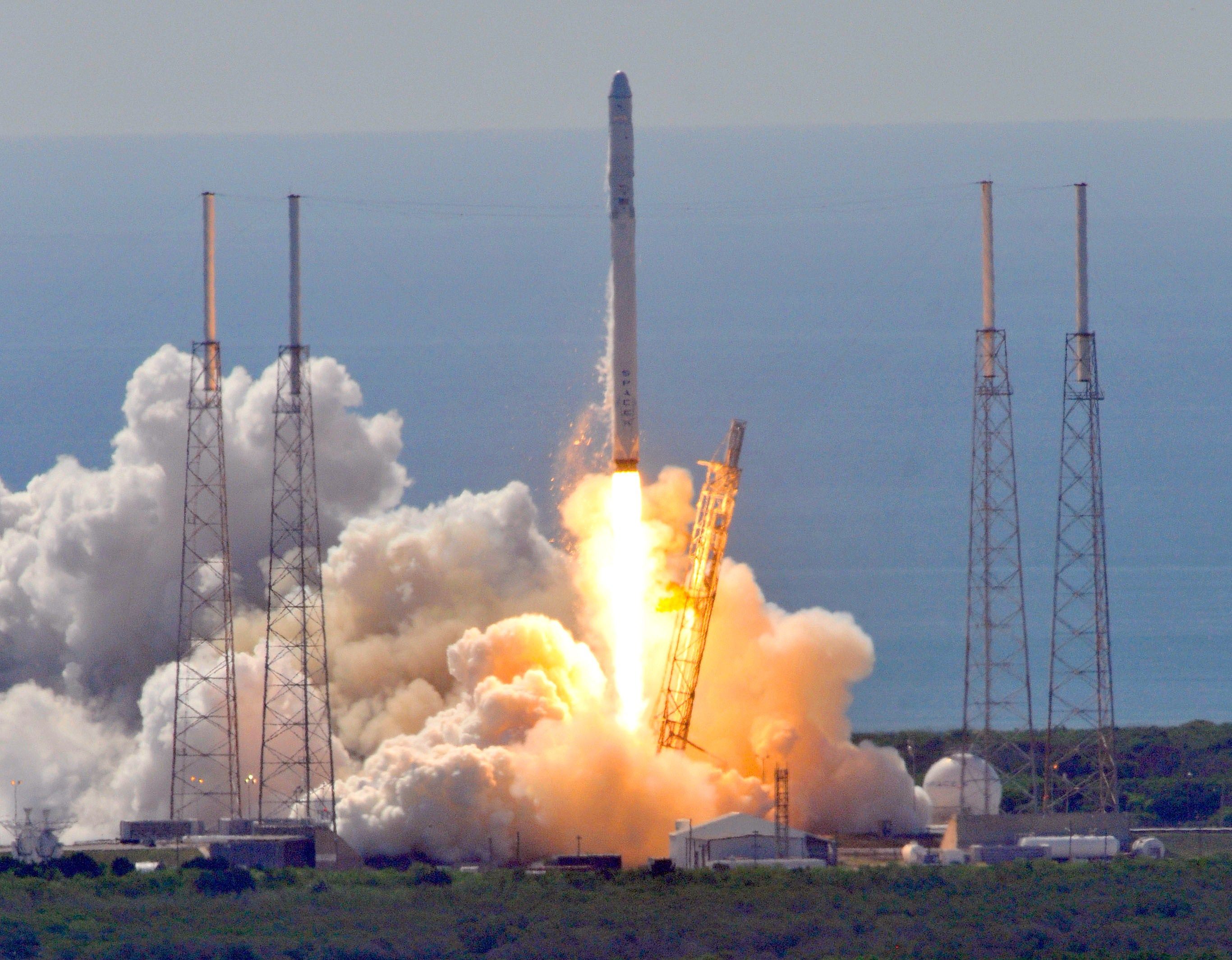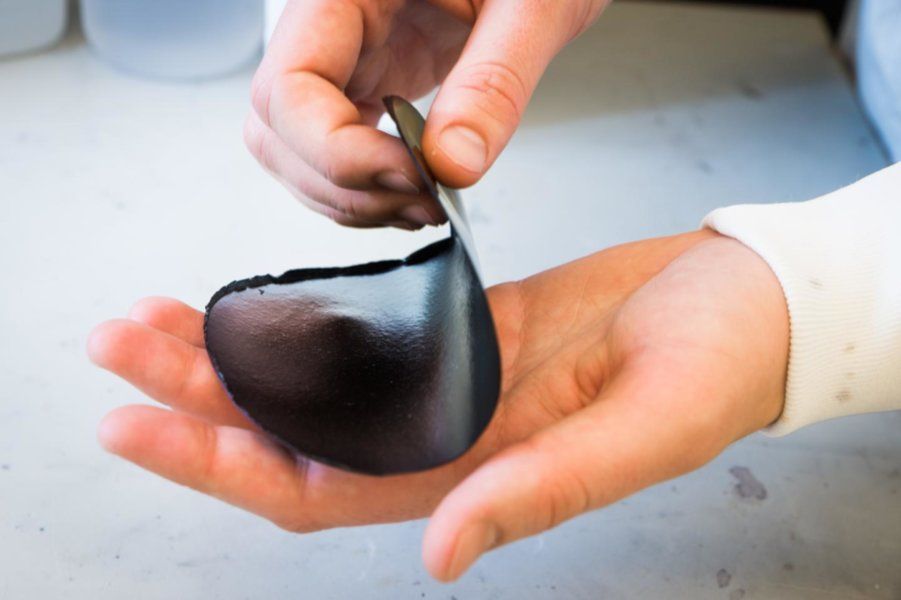That great void of space is growing quieter as the universe dies — but how long do we have before The End?
Page 11806
Dec 4, 2015
Evidence that our Sun could release ‘superflares’ 1000x greater than previously recorded
Posted by Sean Brazell in categories: physics, space
Oh, joy.
What the Sun might look like if it were to produce a superflare. A large flaring coronal loop structure is shown towering over a solar active region. (credit: University of Warwick/Ronald Warmington)
Astrophysicists have discovered a stellar “superflare” on a star observed by NASA’s Kepler space telescope with wave patterns similar to those that have been observed in the Sun’s solar flares. (Superflares are flares that are thousands of times more powerful than those ever recorded on the Sun, and are frequently observed on some stars.)
Dec 4, 2015
The Year We Decided to Live Forever
Posted by Shailesh Prasad in category: life extension
Dec 4, 2015
Geneticists Are Concerned Transhumanists Will Use CRISPR on Themselves
Posted by Zoltan Istvan in categories: biotech/medical, genetics, transhumanism
A informative article by Vice Motherboard:
The biggest debate at the International Summit on Human Genome Editing is where to draw the line between “medical treatment” and “body enhancement.”
Dec 4, 2015
Stanford scientists made plastic skin that can actually feel
Posted by Shailesh Prasad in category: materials
Dec 4, 2015
Controversial experiment sees no evidence that the universe is a hologram
Posted by Jeremy Lichtman in category: space
Dec 4, 2015
Human gene editing gets green light
Posted by Shailesh Prasad in category: biotech/medical
Gene editing research can move forward, but not for reproductive purposes, international summit committee says.
Dec 4, 2015
SpaceX Will Try Its Next Rocket Landing on Solid Ground
Posted by Shailesh Prasad in category: space travel
Following two failed landings at sea, the next Falcon 9 rocket will attempt to touch down at Cape Canaveral.
After SpaceX’s Falcon 9 rocket returns to flight later this month, the company will try to land the first stage booster back on solid ground, according to NASA officials. If successful, it would mark not only the first successful landing and recovery of the company’s flagship rocket, but also the first terrestrial rocket landing for SpaceX after two failed landing attempts at sea.
The launch—which could come as soon as December 15, though a flight plan has not been confirmed by the U.S. Air Force—marks a big next step for SpaceX. The mission will be the company’s first since a June launch in which an unmanned Falcon 9 bound for the International Space Station broke apart mid-flight. The landing attempt will also follow the successful launch and landing of a reusable rocket by rival spaceflight company Blue Origin last week.
Dec 4, 2015
20 Million Driverless Cars May Be On The Road By 2025
Posted by Shailesh Prasad in categories: robotics/AI, transportation
Dec 4, 2015
An organic mixed ion-electron conductor for power electronics
Posted by Shailesh Prasad in categories: electronics, materials, sustainability
Researchers at Linköping University’s Laboratory of Organic Electronics, Sweden, have developed power paper — a new material with an outstanding ability to store energy. The material consists of nanocellulose and a conductive polymer. The results have been published in Advanced Science.
One sheet, 15 centimetres in diameter and a few tenths of a millimetre thick can store as much as 1 F, which is similar to the supercapacitors currently on the market. The material can be recharged hundreds of times and each charge only takes a few seconds.
It’s a dream product in a world where the increased use of renewable energy requires new methods for energy storage — from summer to winter, from a windy day to a calm one, from a sunny day to one with heavy cloud cover.
